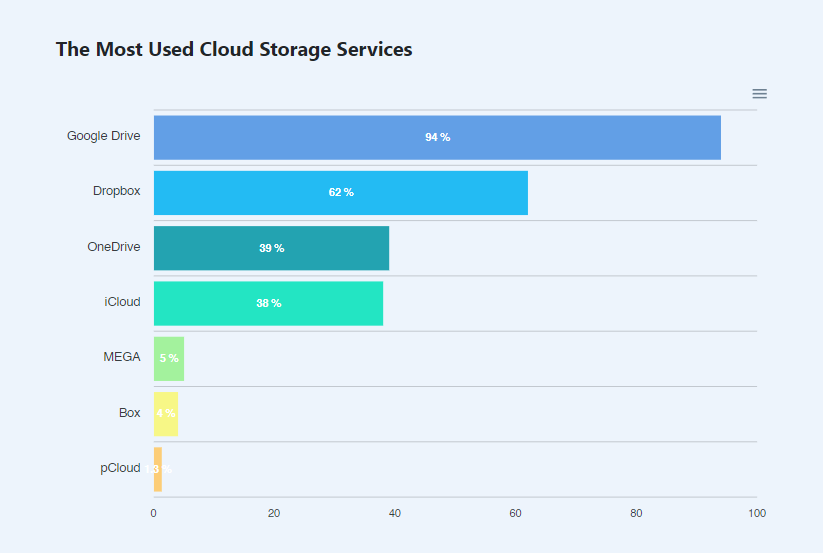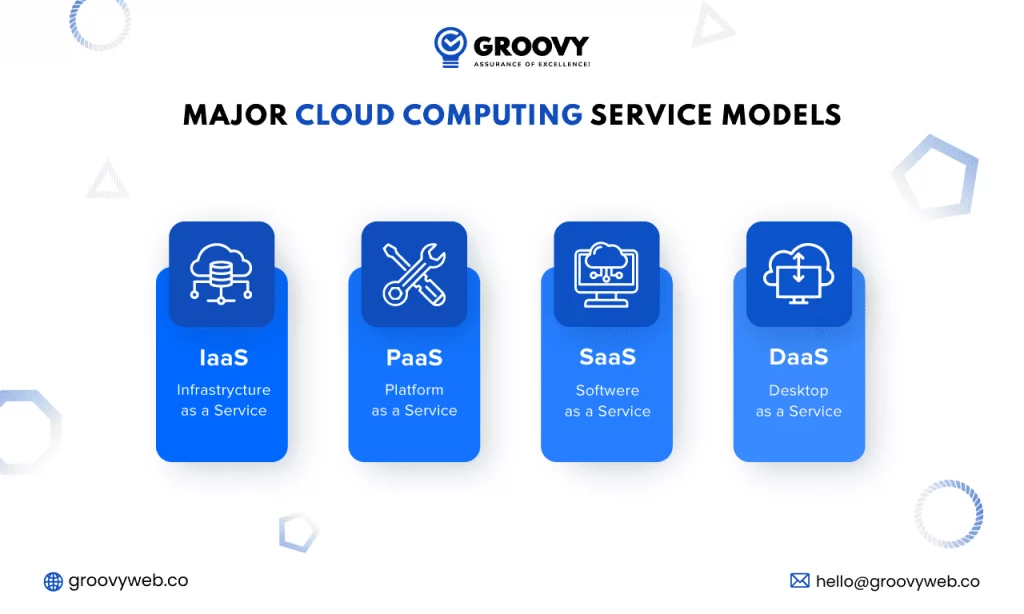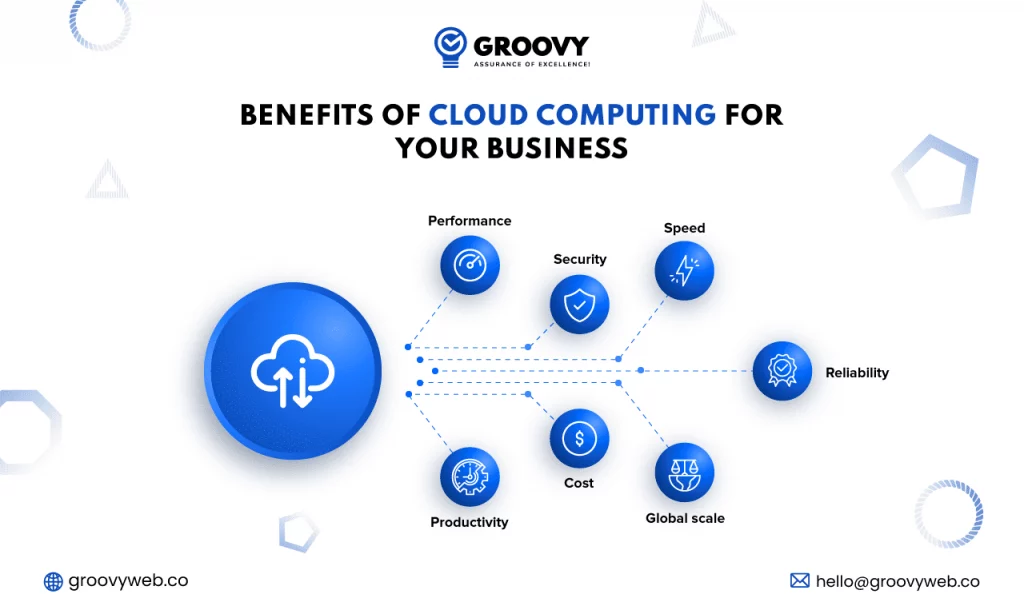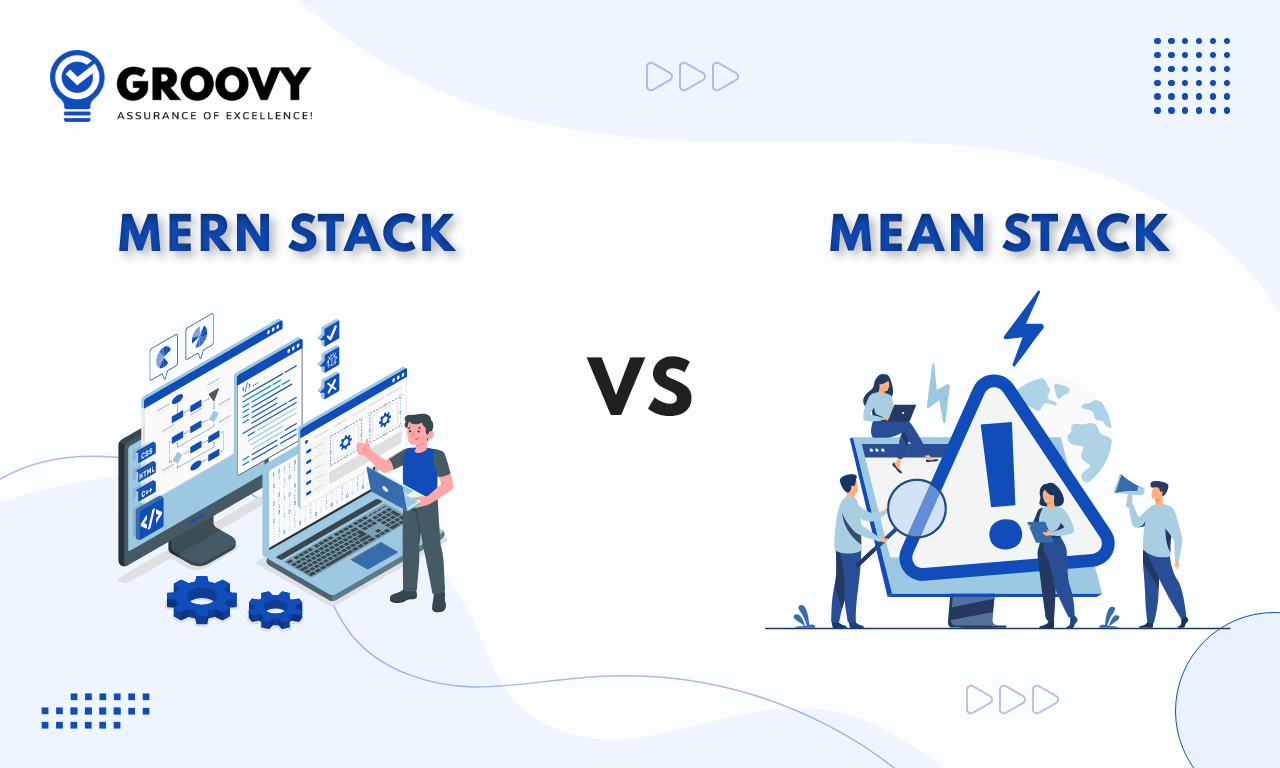Why Cloud Computing Is Important for Your Business
Nauman Pathan
December 30, 2022 557 Views
Quick Summary : Why is cloud computing important for your business or startup? Cloud computing has become an immense choice nowadays. Still, many people wonder why they should opt for cloud computing, What are the benefits of cloud computing, disadvantages and development cost.
Cloud Computing is widely utilized by a lot of companies around the world. Cloud provides a world of potential to companies of diverse sizes from various sectors. However, a lot of companies witness that integrating the Cloud into their legacy software is very much hard than they expected. But through the correct service provider, this process of integration is not as hard as it looks.
There are a lot of legitimate reasons for businesses to bring their systems to the Cloud, agreeing on the broad range of advantages it provides. Following are some statistics that will show you the worth of cloud computing:
- 47% of companies now say they believe that the cloud is the primary option when integrating new initiatives or technology. Just 5% are withdrawing to on-premise.
- Retail (96.9%), finance & banking (92.8%) and media & entertainment (94.9%), are the primary industry areas with the maximum cloud use.
- In the year 2020, the cloud computing market was having a net worth of $371.4 billion. With a composite yearly growth rate (CAGR) of 17.5%, it is anticipated that the marketplace will hold approx. $832.1 billion by the year 2025.
- 87% of companies experienced business enhancements from their usage of the cloud.
- 95% of companies are very much concerned regarding their security in the cloud environment.

Source:- https://www.cloudwards.net/cloud-computing-statistics/
What is Cloud Computing?
Cloud computing is a form of computing in which we get IT resources by paying a certain amount. You don’t need to purchase, own or maintain any data centre or server and you can straightforwardly use computing power, databases or storage.
We can also say that cloud computing is an art that offers organizations different cloud services, data storage, and computing power. These cloud computing services are channelled from the service providers via distant data centres. That means users never need to be concerned about handling the whole thing by themselves.
Let me explain to you through an example
- In earlier times the data as well as programs used to run over that exact computer only if you get it saved in that system. However with the discovery of cloud computing today you can access your files and programs sitting wherever you want, on any device in the world that is connected to the internet.
This not just helps users to run programs with classy technology it also facilitates users to carry out graphic-intensive actions. GPU companies as well as software providers are allowing users to build their businesses through the amazing features of cloud computing solutions.
Major Cloud Computing Service Models

– Software as a Service (SaaS)
SaaS is a very popular cloud computing model that provides you a cloud-based solution for a yearly or monthly fee. Once receiving payment, the cloud merchant gives you access to the software on the web. It is a software solution which you can utilize through your browser. No extra software requests to be installed. You can avail of the service through their user interfaces deprived of much upfront expense.
Some of these popular SaaS solutions include Salesforce and DropBox. These are amazing options for people who want an all-inclusive cloud software solution deprived of paying much. Medium and small businesses that have just begun and do not possess sufficient funds to give on their IT set-up can use SaaS development services software. The SaaS vendors also provide good consumer support in case you get into any issues or troubles.
– Paas (Platform as a Service):
As we can understand from the name, it provides you with a platform for building as well as running cloud applications. It is mainly preferred by developers since PaaS vendors host the software and hardware needed for app development, on their architecture. Hence, developers do not need to install any additional software or/and be concerned about the hardware.
This allows app developers to concentrate more on their application, and bring their minds off the technical details. This, in line, leads to improved software development and quicker deployment. Furthermore, PaaS facilitate you to build, test, run, and update apps on the cloud. And, you get APIs and pre-built tools to customize your apps.
Heroku, Google App Engine, and Apache Stratos are some examples of PaaS.
– Cloud Business Process Services (BPaaS)
BPaaS which stands for the Business process as a service is a kind of business process outsourcing (BPO) provided based on a cloud computing services model. BPaaS is associated with other services, such as SaaS, IaaS and PaaS, and is completely configurable. BPaaS offers organizations the people, procedures, and technology they require to operate as a pay-per-use service by utilizing the efficiency and availability of a cloud-based solution. This method of operations momentously reduces the total cost of ownership by offering an on-demand solution based on services required as opposed to buying a package deal knotted into a single app.
– Desktop as a Service (DaaS)
DaaS is a secure, high-performing, cost-effective kind of desktop virtualization. This service model frees businesses from tying their computer operating systems as well as productivity software to any hardware. As an alternative, businesses can make use of desktop-as-a-services to access virtual desktops on the web through a cloud provider. Cloud vendors that provide this service distribute as well as manage virtual desktops through their own data centres.
– Cloud System Infrastructure Services (IaaS)
IaaS is counted as a very crucial cloud computing model which offers you networking hardware on the web. These resources are offered to you by virtualization. This implies that you can log in to the IaaS platform to employ virtual machines (VM) to install software or OS & run databases. This virtual machine can act as a virtual data centre.
The third-party cloud provider hosts the software, servers, hardware, and needed storage infrastructure. You only need to pay for their services to make them into use. IaaS helps users to carry out tasks, such as resiliency planning, system maintenance, and system backups. In organizations, IaaS allows the automation as well as virtualization of administrative tasks that free up resources and time for other tasks.
Why you need a cloud computing platform for your business
1. Create cloud-native applications
Quickly develop, deploy, & scale apps—mobile, web, and API. Take benefit of cloud-native technologies as well as approaches, such as Kubernetes, containers, microservices architecture, DevOps and API-driven communication.
2. Store, back up and recover data
At present, we live in an era where cybercrime has become very common. There will be no single day without cases of chief data breaches, which sometimes become incurable for quite a several companies.
Old-age methods of data backup have been confirmed to be effective in backing up data extensively. However, they are susceptible to viruses, and because of their transportable nature, they can get missing and pose a danger to modern companies and businesses.
Cloud-based backup as well as archiving is a key to such kinds of challenges. It is simple to implement and offers the utmost data security. Through this approach, you can archive or back up your delicate files to cloud-based storage systems. This gives the guarantee that your data is still unbroken even though your live data get somehow compromised.
Certain cloud computing services help you to plan backups to match your unique requirements. Moreover, you can encode your cloud backups & make it impossible for snoopers and hackers to access them.
Through cloud storage, you can acquire as much space as you need and store as much data and information as you want and will just pay for what you use.
3. Deliver software on demand
Also popular as SaaS or software as a service, on-demand software allows you to provide the latest software versions as well as updates around to customers—anytime they want, wherever they are.
4. Test and build applications
One finest cases of use for cloud computing is a software development environment. Professional team of DevOps can rapidly spin up development, testing & production environments personalized for specific requirements. This can comprise but is not restricted to, automatic provisioning of virtual and physical machines.
To carry out testing as well as development in-house, companies should secure a budget & set up the testing environment through physical resources. Then arrives the installation as well as the configuration of the platform. All this can every so often extend the time it consumes for a project to be finished and get to the milestones. Cloud computing accelerates this procedure through cloud-based development tools which make creating applications and software easier, faster, and more cost-effective.
One of the best advantages of cloud computing is the way it helps the CI/CD pipelines, DevOps process, and cloud-native advancements (e.g., serverless, containerization and microservices). These technologies have caused quick acceleration as well as innovation, but also need a self-sustaining cloud infrastructure to hold the hundreds of services.
5. Analyse data
By using the computing power of state-of-the-art cloud computing, organizations can gain prevailing insights and enhance business procedures via big data analytics.
A huge amount of data is gathered daily from cloud applications, corporate endpoints, and the users who interrelate with them. Cloud computing facilitates companies to tap into massive quantities of both unstructured and structured data available to gain the benefit of mining business value.
Suppliers and retailers are now pulling out information derived from customers’ buying patterns to aim their marketing and advertising campaigns at a specific segment of the populace. Social networking platforms are offering the base for analytics on behavioural patterns that companies are using to raise meaningful information. Companies like these and more are also competent to harness deeper visions through artificial intelligence (AI) and machine learning (ML), two capabilities made conceivable through cloud computing.
Benefits of cloud computing for your business

– Performance
The major cloud computing services work over a worldwide network of protected data centres that are frequently upgraded to the latest generation of efficient and fast computing hardware. This provides several advantages over a single corporate data centre, with reduced network latency for apps and better economies of scale.
Cloud vendors aim to distribute faster network bandwidths to many users. They get this done by adding constant updates to decrease latency. In a survey, professionals asked respondents what impacted their cloud migration.
About 42% of respondents said enhancement in network speed as well as low latency. You additionally get more uptime through regional data centres provided by cloud providers.
Hardware can rapidly become slow and outdated. Cloud vendors have rapid refresh cycles for the servers. You attain better performance through the latest technology because of cloud computing.
– Security
Data security is the biggest fundamental pillar on which companies rely. Since cloud computing is extremely secure with highly encrypted data management and multiple security arrangements. Therefore, the clients have peace of mind with regard to security matters with cloud computing. Moreover, cloud computing depends on the latest security infrastructure which is anytime strong enough to defend itself from any type of malware attack on the system.
– Speed
Many cloud computing solution services are provided on demand and self-service, so even big volumes of computing resources can be arranged in minutes, generally with only a few mouse clicks, providing businesses with so much flexibility and taking the burden off capacity planning.
– Productivity
On-site datacentres generally need so much “racking & stacking”— software patching, hardware setup, & other laborious IT management tasks. Cloud computing eliminates the requirement for numerous of these tasks, hence IT teams can spend time on attaining the more crucial business goals.
– Cost
The main reason behind the demand for cloud computing services in the business is its reasonable cost. Any commerce and trade activity needs a low cost of processes in their corresponding fields. Earlier companies had to bear the expense of setting up an IT infrastructure on their own with the cost of running as well as managing too.

However, with the arrival of cloud computing, such features are occupied by third-party vendors. And this is the reason why the investment, and the operational cost, have condensed magnificently. Now also small startups or companies can operate their business with less amount of money and benefit from the similar quality services that the large companies can afford.
– Global scale
The advantages of cloud computing services comprise the competence to scale elastically. This implies delivering the right extent of IT resources—for instance, more or less computing power, bandwidth, and storage —right when it is required and through the precise geographic location.
– Reliability
Regardless of how strong and efficient your IT team is, it might not be feasible for them to interfere in the troubles that may take place in your system at any time. Furthermore, not every business has the required tools and structure to handle systemic errors or large interruptions. If systemic issues are not solved right away, big expenses can be experienced for companies. Many companies are unsure about transferring their data to the cloud. While business officials can access data through the web browser of any computer, can it be assured that others can’t access it?
Reliability is important for Cloud Integration; Cloud vendors should adhere to a severe set of security protocols to protect the data of customers. This improved security is offered by encrypting the data sent over networks as well as stored in the databases. Whereas unauthorized access is prohibited with strong firewalls, the systems of the companies are protected from viruses, hacking, & internal data theft. Cloud integration detects as well as isolates these hazards before they arrive in your system. Plus, it has a much lower primary cost than other approaches.
How does cloud computing enhance efficiency?
Cloud computing is capable to boost your business-related operations in different ways. In below article we are going to share ten benefits of cloud computing which can improve your business efficiency and can give a push to your company:
1. Reduced Technical Issues
There are several times so many businesses face IT-related issues and sometimes it may serious for the company. So operational IT work can be easily outsourced with the support of cloud computing without the need for IT specialists or their availability on the site. This will support management as IT infrastructures more properly and it will also overcome the risk of any big or serious issue.
With the help of cloud computing technology, all things from security to routine maintenance can be planned efficiently as well as completed in a simple way. Your staff will be able to focus on work rather than struggling with technical issues.
2. A Connected Workforce
Collaboration is very important among workers for your business productivity. Collaboration technologies, as well as cloud computing solutions, can support all employees to work together in an efficient manner and it makes also it simple for each employee that he can access files as well as important documents according to their requirements and their location does not matter in it.
Employees are free to work from home, in the office, or according to their favourite place. File transfer forth amid workers may be bulky as well as time-consuming. Cloud computing permits a more streamlined procedure for teamwork.
3. Total Flexibility And Growth
Modification in business is necessary with time and it does not matter in which field you are working. You will have to utilize the latest trends and adapt the technology when they are necessary if you want to survive in the competitive market. You can improve flexibility which is generally not available with physical solutions with the support of cloud computing. Cloud computing services can be managed with demand. So if demand is high so you can increase the services, and the same for another scenario if demands drop so you can reduce the services according to your requirement.
4. Better Utilization of IT Resources
If you have the facility of in-house IT resources, then there is a possibility that their time may be wasted on the maintenance of physical technologies. It may be related to updating security or controlling the servers. Cloud computing can support your in-house IT resources for this kind of job, and it offers them more time through which they will be able to focus on enhancing the business’s efficiency in the long term.
Make sure to properly test all your new solutions before you start integrating them into your business. To do this, create a good software testing life cycle so you can track progress and make marks of potential issues.
5. Easy Integrations
The integration of cloud computing solutions is too easy with different kinds of software apps. With the support of this technology, workers can switch between tools and programmes, and there is no requirement to move data as well as information between them manually. This kind of integration supports saving precious time and overcoming errors from human mistakes.
6. Attract New Talent
When you utilize cloud computing solutions in your business so it supports your whole staff and gives freedom to work remotely. This simply means that you can approach new talent from anywhere in the world, so you will be able to hire the professional developer according to your job. It will improve the efficiency of your business.
7. Improved Security
In the modern world, almost every business is a target of attackers or security breaches. If you use cloud computing then it can reduce the risk of ransomware attacks as well as different serious security issues.
Cloud computing service providers have strong and experienced teams which work to protect your system and they also prevent unwanted downtime and make your business safe.
8. It reduces Operating Costs
Hardware as well as other computer accessories may be costly. If you are using cloud computing so there is no need to purchase these costly items because various cloud computing providers provide different payment models to keep operational as well as infrastructure costs as low as possible.
9. Access to the technologies
Cloud computing supports small corporations to access the latest technology at the right time and when you acquire the technologies at the correct time so your business grows efficiently and is much more effective compared to the before scenario.
Sometimes ago only large companies could access these technologies and now with the support of cloud computing small industries are able to utilize this technology and give tough competition to the giants in the market.
How to get started with cloud computing for your business.
Cloud computing helps rising your business effortlessly, but it doesn’t imply that managing your cloud is essentially simple. There are still so many variables in cloud management that can complicate issues. Groovyweb provide you with SaaS Development with the aim that you can take advantage of your cloud model devoid of needing to handle any headaches. We can line up your cloud environment to your corporate business strategy with the intention that you can get back to concentrating on your business.
Final thought
The main causes why cloud computing is crucial for business is that it enables companies to scale, focus their efforts on business operations and maintain flexibility – not managing intricate IT infrastructure.
One of the finest ways to enhance cloud computing for your organization is by working in a company with the best cloud partner. You can choose Groovy Web for the best SaaS solution development services near me that you would ever find somewhere else. You can contact us any time to get the best quotes.
Written by: Nauman Pathan
Nauman Pathan is a Project Manager at Groovy Web - a top mobile & web app development company. He is actively growing, learning new things, and adapting to new roles and responsibilities at every step. Aside from being a web app developer, he is highly admired for his project management skills by his clients.
Frequently Asked Questions
We hope these clear your doubts, but if you still have any questions, then feel free to write us on hello@groovyweb.coWhat is cloud computing architecture?
Cloud computing is another term for Internet-based computing. Cloud Computing Architecture: The components and sub-components necessary for cloud computing are referred to as cloud computing architecture. These elements are generally cloud-based delivery and a network (Internet, Intranet, Intercloud).
What are some examples of cloud computing?
There are many examples of cloud computing such as, email, web conferencing, customer relationship management, storage clouds etc. some popular examples are google drive, megz, onedrive, yahoo mail, gmail and all.
Related Blog

Sagar Patel
MERN stack vs MEAN stack: Detailed Comparison
Web App Development 23 Oct 2023 12 min read
Nauman Pathan
Benefits Of Mobile Apps For Business Need To Know in 2023
Mobile App Development 08 Jun 2023 11 min read
Ashok Sachdev
Telemedicine App Development: Complete Step by Step Guide
Mobile App Development 04 Nov 2023 12 min readSign up for the free Newsletter
For exclusive strategies not found on the blog